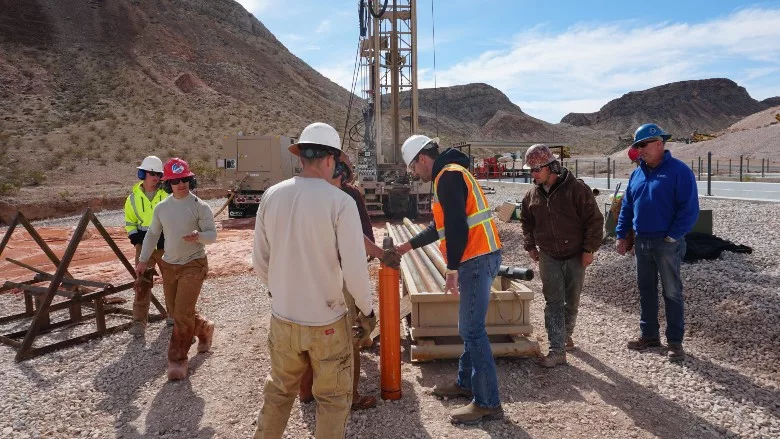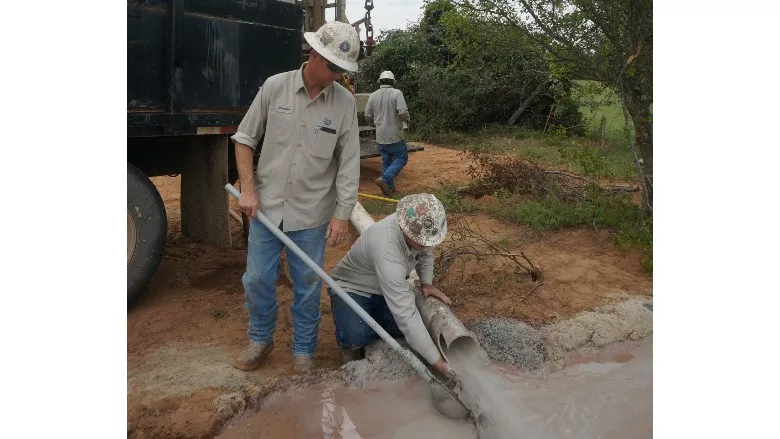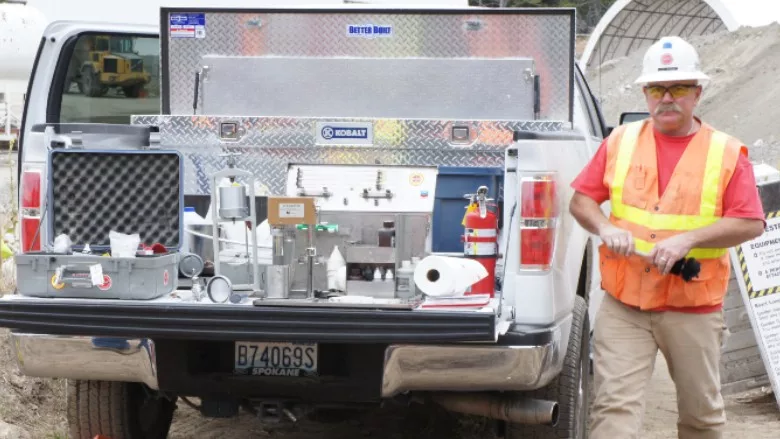Is it Time for Drilling to Retire the Term ‘Helper’?
Industry May Benefit from a New View of This Critical Role

Everyone on site should know the essential functions and basic operation of the equipment, trainer Brock Yordy says. Fellow teammates never know when they might have to reverse the controls because, for whatever reason, the driller cannot operate the machine.
Source: Brock Yordy

When bringing on new teammates, use their initial goals to guide their understanding of the drilling industry’s complexity and time it takes to learn proficiency.
Source: Brock Yordy

As you learned all the nuances of the industry, from mud testing to the “feel” of different formations, who assisted you?
Source: Brock Yordy
The common trend in the drilling industry is to not formally train new hires, but to give them hands-on learning in the field. I believe this trend ingrained in drilling culture comes from the value we put on that traditional process of learning in the field. Nothing is more critical than learning the feel of formation changes while standing at the controls — the first time a new driller realizes the relationship between a dense formation and jumps in the instrument gauges as the hydraulic pressure changes. Finally, we watch cuttings flow out of the hole as chatters from the tooling teach us the importance of maintaining flow. As you learned all the nuances of the drilling process, gaining confidence with every foot drilled, who assisted you?
Types of Drilling Assistants
Very few drillers, at the beginning of a career, get to choose their driller assistant. Typically, I see three types of driller’s assistants: former drillers, full-time helpers and new hires. (Sure, there is always that fourth type: either the full-time pump installer or the younger sibling to the company owner. Either provide just temporary help, love talking about service work and hate shoveling, and you never know if they are there to help or sabotage.) A former driller offers the best option. They have your back as they watch you learn and complete all tasks required for their role.
Working with a full-time helper has advantages. They know their job and can do it effectively. But it also has disadvantages. They tend to work at their own pace and often expect the new driller to know all that the veteran driller knew. Full-time helpers are excellent resources. However, they have chosen to stay off the platform for multiple internal reasons.
The last option is the new hire — often perceived as the least productive assistant to have on the job. However, must we perceive it that way? Or is it time to change the culture and embrace the opportunity? And, while we are changing the culture, let’s eliminate the term “helper” in favor of assistant driller or (my preference) teammate.
Focus, Fear or Failure?
What stops us from changing our own culture, who we choose to be on our team? Is it focus, fear or ultimately a failure? All three tie together. If we cannot focus on changing downhole conditions because we fear our new teammate doesn’t know how best to assist us, project progress slows creating possibilities for failure. As a new driller progresses, one of the greatest lessons learned is, you can prevent failure by changing the tempo and slowing down. Therefore, a new or seasoned driller can succeed with a new hire; it just takes time to create the optimal teammate.
Expectations for the Optimal Teammate
Training a new hire to be your ideal drilling assistant entails outlining expectations. If you ask my good friend and fellow The Driller writer Dave Bowers, he would tell you an assistant is on the job to prevent the driller from being distracted while drilling. He would continue to explain that, “Your job as an assistant is to keep the driller on the platform by completing all tasks necessary for them to continue to drill.” I agree with those expectations. As a driller, you must decide your expectations and stick to them.
Learning to be a driller requires reacting and changing many times in a shift. Learning to be an assistant, or developing an assistant into your optimal teammate, requires consistency with minimal changes in each task learned. Yes, jobs will differ, creating new obstacles that require alternative solutions. That does not excuse randomly changing the order of procedures due to lack of forethought. What should your outline of expectations and processes entail? What do you want out of your optimal teammate, and do you know what they want from working with you? Mutual success requires a solid foundation of fundamentals and shared goals.
The Foundation of the Optimal Teammate
The most important foundation is safety. Start by teaching new hires the importance of safely moving and working around rigs and the jobsite. Then instill in them that protective safety equipment is the last line of defense after all other safety measures have failed.
We cannot expect them to react with urgency when conditions change, or to know the importance of having casing ready to run when we come out of the hole, without some sense of the physics-defying act of keeping a sand and gravel production zone open.
The next layer to a strong foundation is teaching them the functions and controls of the rig and other complex equipment onsite. I know this concept is controversial and 100% opposite of the drilling culture, but I consider it critical in creating an optimal teammate. Everyone on site should know the essential functions and basic operation of the equipment, even if their performance is slow and inefficient. You never know when the moment might arise where the assistant might have to reverse the controls because, for whatever reason, the driller cannot operate the machine.
Next, our new hire needs to understand the fundamentals of a borehole and downhole conditions. We cannot expect them to react with urgency when conditions change, or to know the importance of having casing ready to run when we come out of the hole, without some sense of the physics-defying act of keeping a sand and gravel production zone open.
Goals of the Optimal Teammate
How does your company outline goals and expectations? Standard conditions for employment require distributing a printed copy of the responsibilities and expectations associated with an employee’s role. Do you distribute roles and responsibilities? What if the employee’s supervisor and even the company owner took a more interactive role? At the end of the first week of employment, sit down with the new hire and discuss goals and expectations for the next month, six months and the following year. By having this discussion at the end of the first week, the new hire gets an excellent impression of the job. The same conversation allows the company to understand what to focus on to help build the ideal employee.
An easy way to start and track progress involves a simple 3-by-5-inch notecard. Ask the new hire to write down five goals they would like to achieve by the end of the first month. Next, the driller and general manager/owner should take the notecard and write down five company goals. Break those down into one goal for the end of the first month, two goals for the six months and two goals for the end of the year. Finally, establish dates for the next three meetings, then photocopy the card and laminate both. There can be more than one progress meeting if the driller and senior leadership are two different people. I suggest owners and general managers have just as much insight as the site leader into an employee’s growth.
Tracking Progress of the Optimal Teammate
Every review should start with these three questions
- Do you like your job?
- Do you feel safe?
- What do you want next?
After those questions, pull out the cards and review the employee’s original five goals and progress. Add any uncompleted goals to the six-month follow-up, and allow the employee time to evaluate the original goals and change as they deem fit. The objectives of the initial goals are to guide the employee into understanding the complexity of the drilling industry and time it takes to learn. It proves very humbling to reflect on goals and reevaluate. Next, review the company’s goals and create new ones to replace completed ones.
Related Articles
Success depends on the ownership the company takes in building optimal teammates. The growth, progress and development of quality employees require tracking and follow-up. It starts with a single new hire almost the same way it began on that very first borehole: a lot of uncertainty and a few tough decisions, but you completed the well.
Looking for a reprint of this article?
From high-res PDFs to custom plaques, order your copy today!





